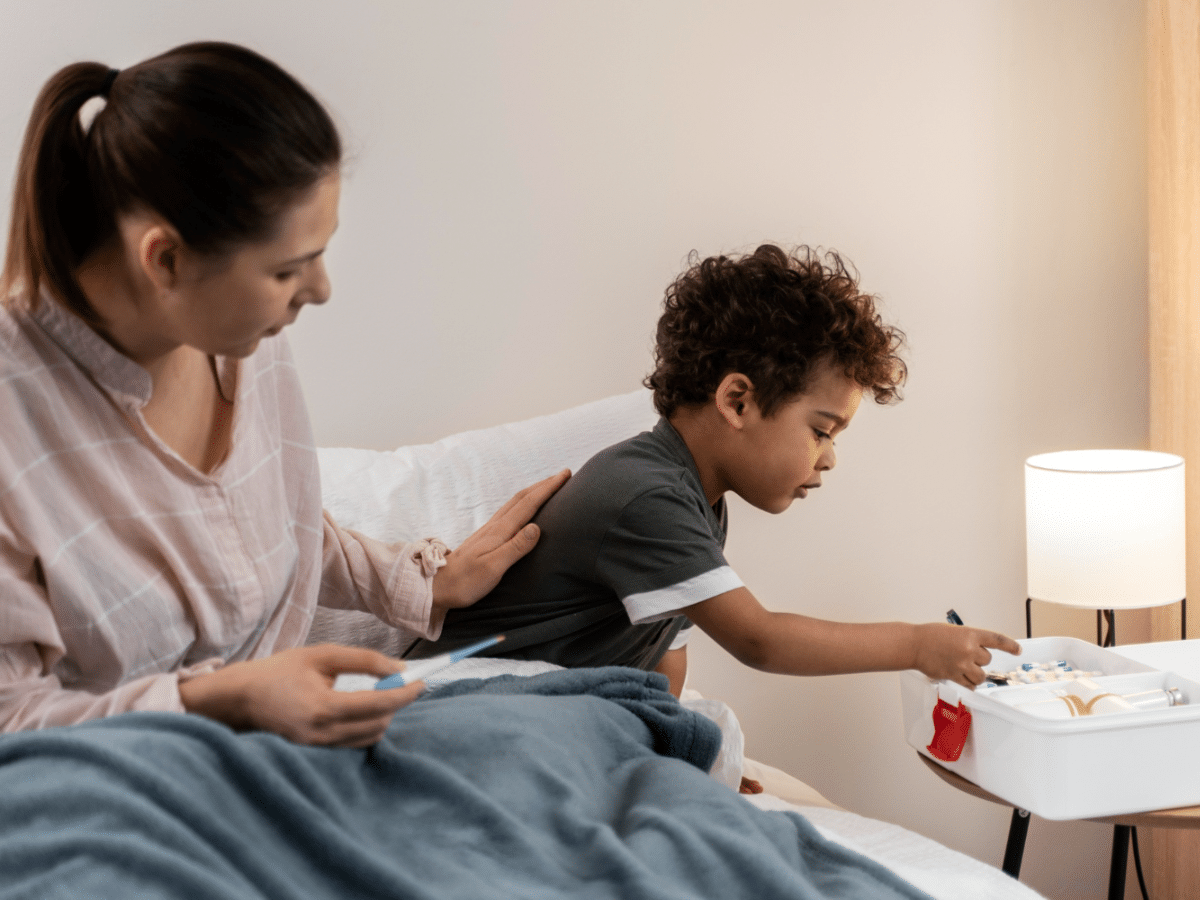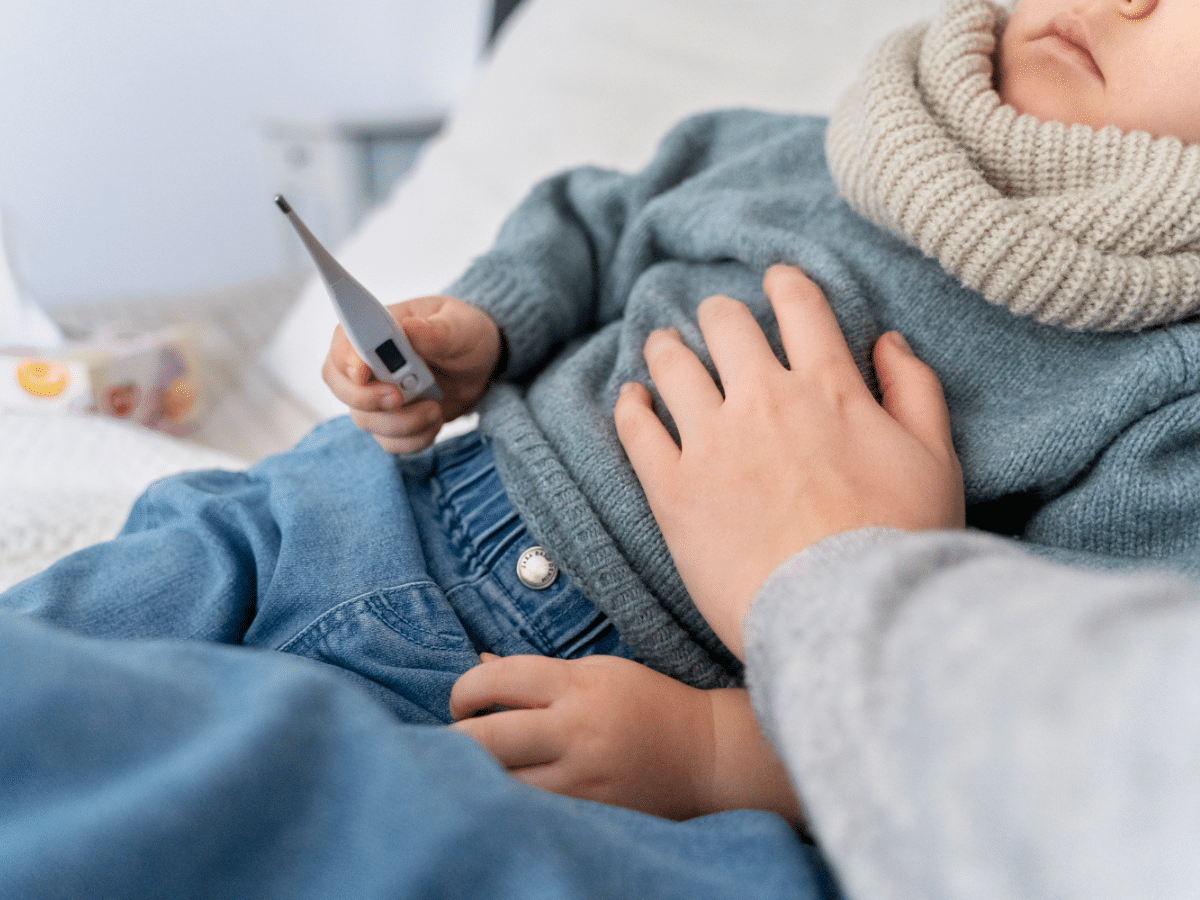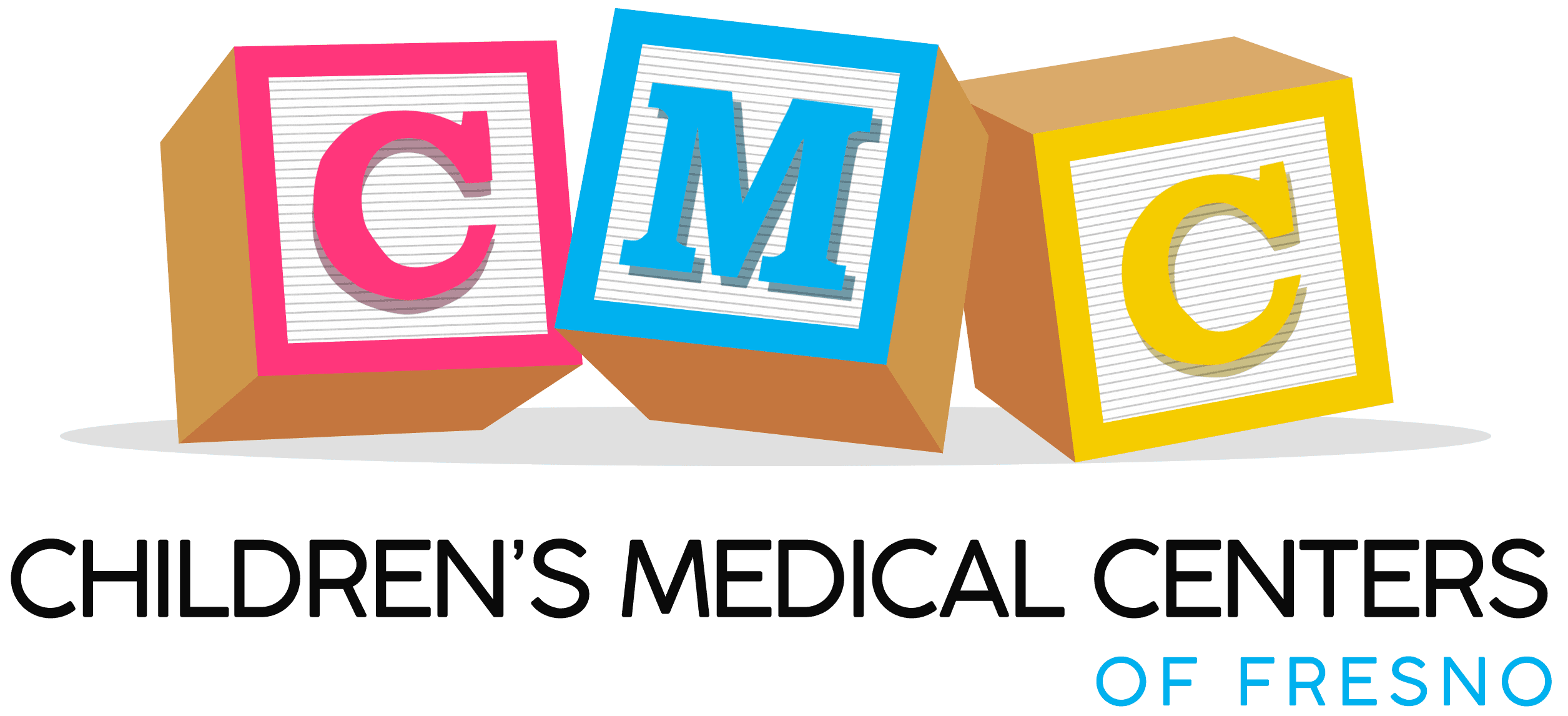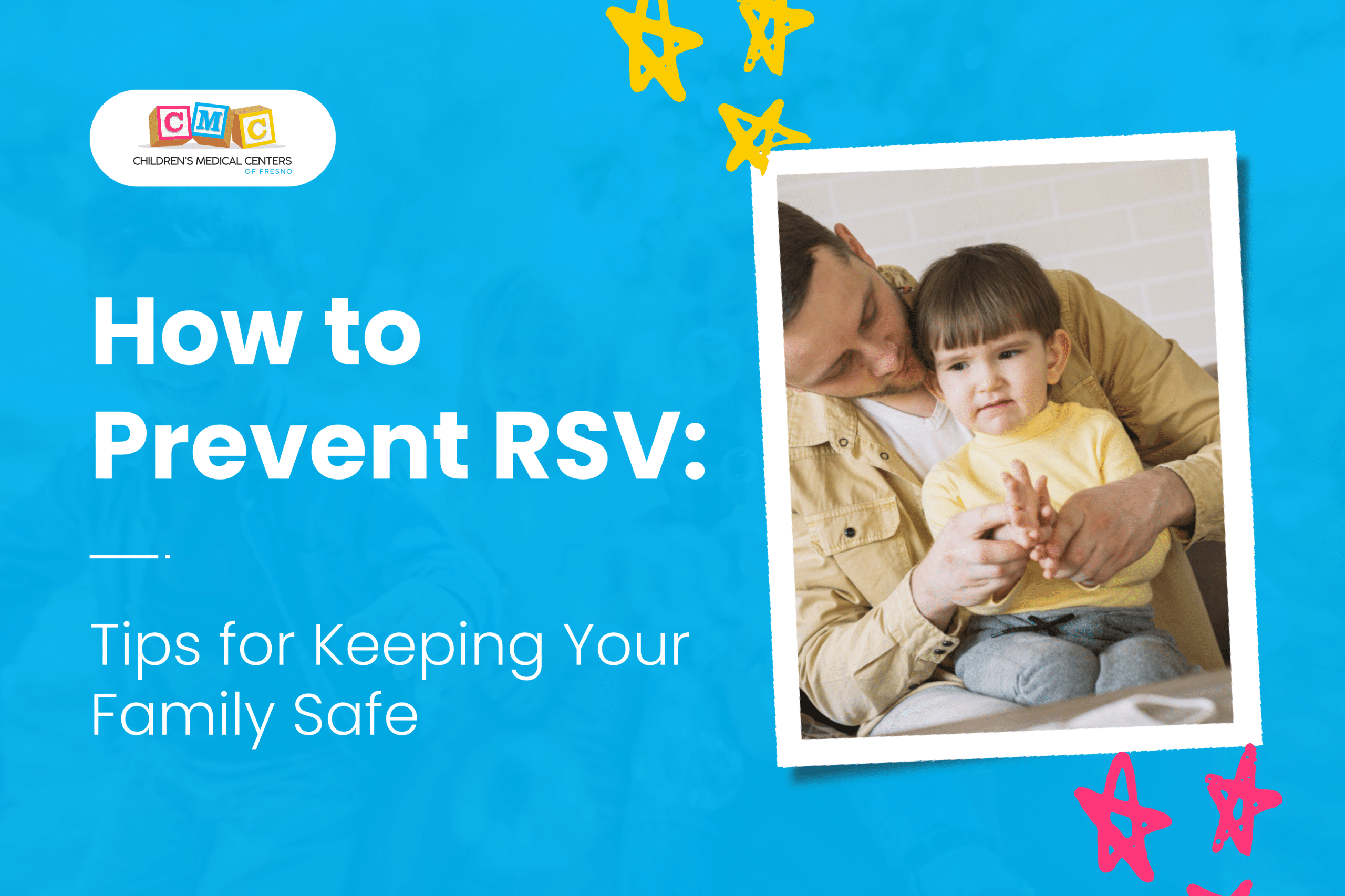As a parent, it’s natural to wonder why Respiratory Syncytial Virus (RSV) cases swell during winter and flu season. The reason lies in two main factors: how the virus behaves during this time of the year and how your family spends time together.
For starters, the cold weather brings everyone indoors, where viruses spread faster through close contact. Like other respiratory viruses, RSV survives longer in the cool, dry air. It can also linger on surfaces your child can touch or hold.
To make things worse, RSV overlaps with flu season. The timing makes it quite tricky to recognize symptoms of RSV in babies or even toddlers, as flu and RSV share many common symptoms, from coughing to sneezing.
The upside? You, alongside local pediatricians, can create a prevention plan to protect your child from the virus that sends nearly 80,000 children to hospitals every year, mainly due to complications like bronchiolitis and pneumonia.
Your Guide to RSV Care Starts Here
Simple Ways to Prevent RSV
Like most busy parents, washing hands or cleaning toys may slip your mind, but bumping them up your to-do list is critical. Colder months put young children (particularly those under two years old) at a significantly higher risk for RSV infection.
Changes in humidity and cooler temperatures dry out the nose and throat lining, which makes it difficult for your child’s body to ward off germs.
Learning prevention strategies empowers you to take action before your child catches the virus and needs urgent RSV treatment.
Handwashing and Hygiene
Frequent handwashing can stop the transmission of RSV. Teaching young kids good hygiene habits early on paves the way toward long-term health benefits. The challenge is how to start.
Pediatric experts recommend turning handwashing into a game or routine they’ll look forward to. For example:
- Choose a familiar tune like “Twinkle, Twinkle, Little Star” and sing it twice while washing your child’s hands (at least 20 seconds).
- Let your kids choose their favorite color, scent, or cute dispenser. If they love how it looks, they’ll want to use it.
- Create a handwashing chart where your child earns a sticker or small toy when they wash their hands before meals, after playtime, or when coming home.
If soap and water are not available, use hand sanitizer with at least 60% alcohol solution. If your child shows signs of being sensitive to hygiene products, schedule a check-up with your pediatrician. At CMCFresno, our pediatric team will guide you through RSV prevention and help you find hypoallergenic hygiene alternatives that suit your kid’s skin.
Keeping Kids Home When Sick

When your child shows signs of RSV, say wheezing or fever, you should keep them at home and take precautions to prevent the virus from spreading to other family members. If your child is an infant, it is best to keep them home to monitor their symptoms closely, like labored breathing, flaring nostrils, or bluish lips.
If your school-age child is not sick and their classmates are showing symptoms, consider several factors before sending them to school:
- If your child has a pre-existing health condition (like asthma) or was born prematurely, keep them home.
- For kids who had prolonged contact with a classmate who is showing signs of RSV illness, keep them home for a day or two to watch for symptoms and control the spread.
If your child is healthy and doesn’t meet high-risk criteria, you can let them join the class, but with added precautions:
- Encourage regular handwashing.
- Remind them not to touch their face.
- Pack hand sanitizer for use throughout the day.
- Ensure their vaccinations are up to date.
Keep your child’s care as easy and stress-free as a day in PJs!
Sometimes, viral infections are difficult to tell apart because of similar symptoms. Is it RSV or the flu? If you’re unsure, contact (559) 455-1500. Opt for our telemedicine support for more convenient options, from same-day appointments to faster prescription refills.
Avoiding Crowded Places
After being cooped up for a while, it’s perfectly normal for families to go out and enjoy carnival rides in fall and holiday parades in winter. Festivals and cultural celebrations invite your child with colors and treats, but this is also RSV season.
You can still go out safely if you follow precautions like wearing a mask and, as mentioned earlier, using hand sanitizer. You must also keep your distance from coughing individuals, which can be challenging in crowded places.
This season might also be a great opportunity to stay home and enjoy some quality time indoors with games, movies, and crafting activities to keep boredom at bay.
Cleaning and Disinfecting Surfaces
RSV can live on surfaces for several hours. That’s why you must regularly clean your child’s playroom and other high-touch objects, including toys and doorknobs. Don’t skip the stuffed animals; wash them with hot water and a gentle detergent.
Vaccination and Preventative Medication
RSV vaccines are highly effective in protecting young children, especially high-risk ones. This category includes premature infants, those with chronic lung or heart conditions, or immunocompromised kids.
Recommended options include nirsevimab (Beyfortus) for infants, seasonal flu shots, and other recommended pediatric vaccines. If you have cost-related questions, call (559) 455-1500 and check if your baby qualifies for no-cost vaccines via the CDC’s Vaccines for Children (VFC) Program.
Community Awareness and Access to Care
If you want to read more and check your child’s options, look up RSV prevention sources from the National Hispanic Medical Association. The California Department of Public Health website also offers access to their weekly Respiratory Virus Report covering COVID-10, flu, and RSV cases.
Explore various RSV-related resources compiled by HispanicHealth.info, a resource hub established by the National Hispanic Medical Association in collaboration with Latino Health Advocacy Organizations, NHMA’s Council of Medical Societies, and the Hispanic Health Professionals Leadership Network.
Stay One Step Ahead of RSV

Preventive measures are the best first steps any parent can take to protect against RSV, especially for vulnerable children. You can ensure a healthier season by practicing good hygiene, encouraging frequent handwashing, and avoiding crowded places when RSV cases are high.
Contact Children’s Medical Centers of Fresno today for expert guidance on RSV prevention. Consult with our seasoned specialists comfortably—English and Spanish-speaking doctors are available to assist you. We provide support and resources for:
- Personalized newborn and preemie care
- Consultations for RSV-related concerns
- Flexible options for in-person sick visits and telemedicine appointments
- RSV immunizations for babies and pregnant women
Your child’s health is our top priority. Let us help you keep them safe this season!
RSV-Proof Your Family





